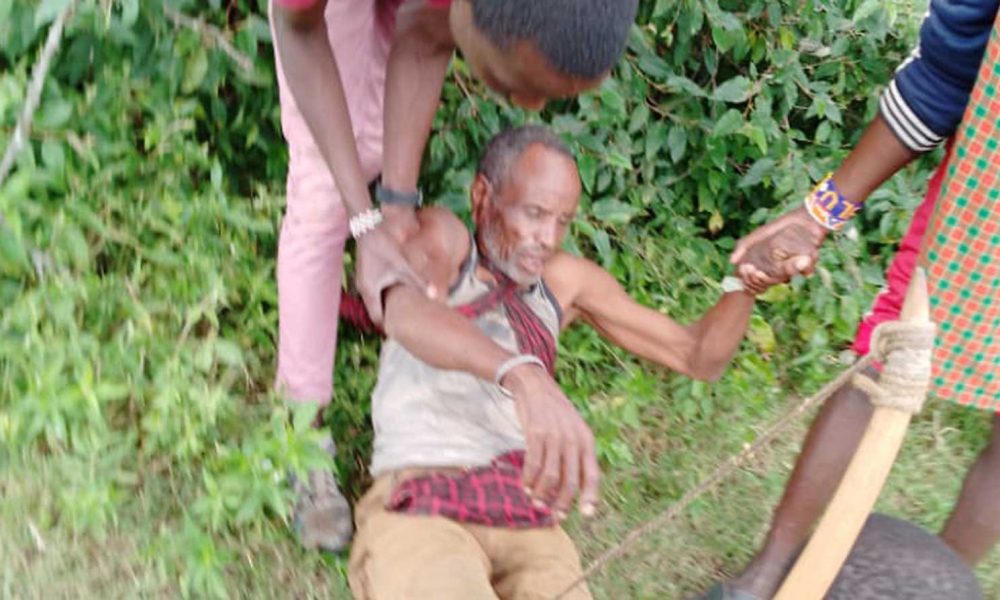NGO WORK
Worldwide Condemnation Over Violence against the Maasai by Tanzania Security Forces
Published
3 years agoon
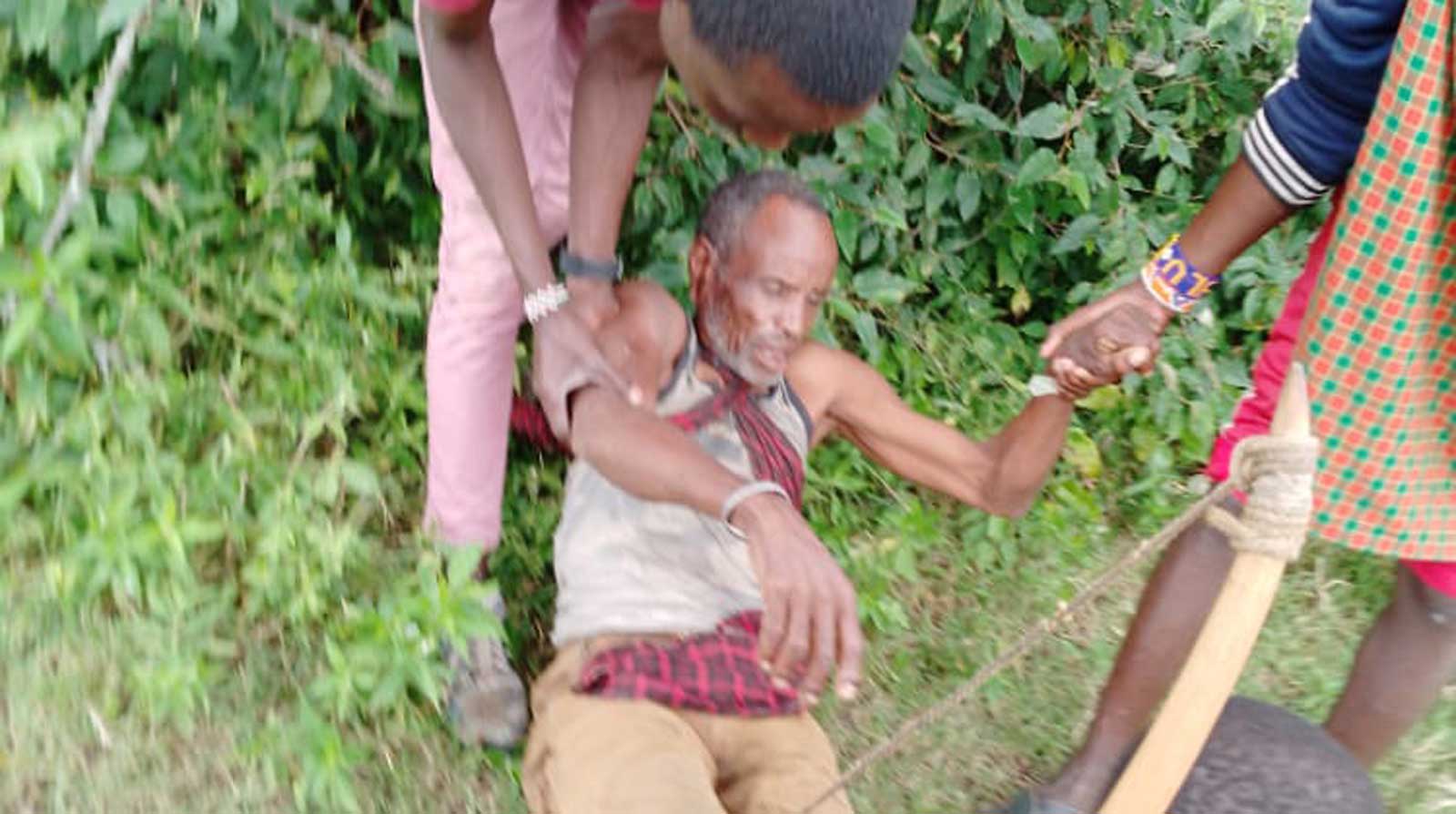
Maasai protesting evictions in Loliondo injured by security forces.
—FOR IMMEDIATE RELEASE—
- Since June 8, 2022, the demarcation of 1,500 km2 of land that the government of Tanzania intends to turn into a game reserve has led to widespread violence against the Maasai.
- Security forces have cracked down on Maasai resisting the ongoing eviction process, which has led to dozens of people injured, dozens of arrests, and a police officer killed.
- The game reserve to be created is to be handed over to the royal family of the UAE for trophy hunting whereas it would trigger mass evictions of Maasai living in legally registered villages within the area.
- These horrific abuses have led to strong condemnations by the United Nations and civil society organizations from around the world.
Oakland, CA — On June 8, 2022, the Tanzanian government initiated the demarcation of 1,500 km2 of land that it intends to turn into a game reserve, which would trigger mass evictions of Maasai living in legally registered villages within the Loliondo division of Ngorongoro district.
This action has led to widespread violence against the Maasai by security forces, which has left at least 29 people wounded by live ammunition and other injuries. Reports from the ground also indicate home raids by police forces leading to an unknown number of people arrested.
“The Tanzanian government is using violence to forcibly displace the Maasai, grab their land and hand it over to the royal family of the UAE for their hunting pleasures, indicating its ruthless disregard for its citizens, international law, and due process,” said Anuradha Mittal, Oakland Institute Executive Director, who has warned for several years about the unfolding disaster through several reports and alerts.
There is widespread condemnation of this violence and forced evictions of the Maasai by numerous organizations and coalitions. On June 13, 2022, the African Commission on Human and Peoples’ Rights strongly condemned(link is external) the violence and urged the government to halt the eviction and open an independent investigation. On June 14, the United Nations Permanent Forum on Indigenous Issues expressed(link is external) “its profound concern” over the ongoing evictions” and called “on the government of Tanzania to comply with the provisions recognized in the UN Declaration on the Rights of Indigenous Peoples, and other relevant international human rights instruments, and ensure the right of the Maasai to participate in decision-making, considering that their land in Loliondo for safari tourism, trophy hunting and “conservation” will affect their lives and territory.” On June 15, nine United Nations Special Rapporteurs called(link is external) “on the Tanzanian Government to immediately halt plans for relocation of the people living in Loliondo and the Ngorongoro Conservation Area and begin consultations with the Maasai Indigenous Peoples, including direct contact with the Ngorongoro Pastoral Council, to jointly define current challenges to environmental conservation and best avenues to resolve them, while maintaining a human rights-based approach to conservation.”
The Tanzanian government has denied(link is external) the violence and claims(link is external) it is carrying out its plans through voluntary resettlement. Government spokesman Gerson Msigwa thus stated to the media(link is external) that “no soldier, government or government leader has been sent to evict a citizen or a Masai from their homes.”
“Why would the operation of demarcation be led by the Special Forces of the Tanzanian Police Force (TPF) if people were to move voluntarily?” questioned Mittal. “These statements by the government responding to the growing worldwide attention are misleading. The fact is that demarcation intends to change the status of the Game Controlled Area where the Maasai are living to a Game Reserve to be used for tourism and trophy hunting,” she said.
The United Arab Emirates (UAE)-based Otterlo Business Company (OBC) — which runs hunting excursions for the country’s royal family and their guests — will reportedly control commercial hunting in the area despite the company’s past involvement in several violent evictions of the Maasai, burning of homes, and the killing of thousands of rare animals in the area.
“This international mobilization is extremely important to help stop the violence and the forced evictions and deeply appreciated by the impacted communities on the ground,” Mittal emphasized. “However, these latest events are a continuation of past efforts to evict the Maasai from their land for safari tourism and trophy hunting. For years, the Maasai have only demanded respect and fulfillment of their basic rights. African and international human rights bodies are echoing their demands. It is time for the Tanzanian government to listen,” Mittal concluded.
Source: oaklandinstitute.org
Related posts:

 COVID-19 LOCKDOWN LAND GRAB VIOLENCE: Multinational company, security firm sued for torture
COVID-19 LOCKDOWN LAND GRAB VIOLENCE: Multinational company, security firm sued for torture
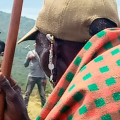 Call to Sever Ties with Tanzanian Government Over Latest Human Rights Abuses Against the Maasai
Call to Sever Ties with Tanzanian Government Over Latest Human Rights Abuses Against the Maasai
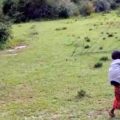 Tanzanian Government’s Sustained Campaign Against the Maasai in Loliondo and the Ngorongoro Conservation Area
Tanzanian Government’s Sustained Campaign Against the Maasai in Loliondo and the Ngorongoro Conservation Area
You may like
NGO WORK
Discover How Foreign Interests and Resource Extraction Continue to Drive Congo’s Crisis
Published
23 hours agoon
November 12, 2025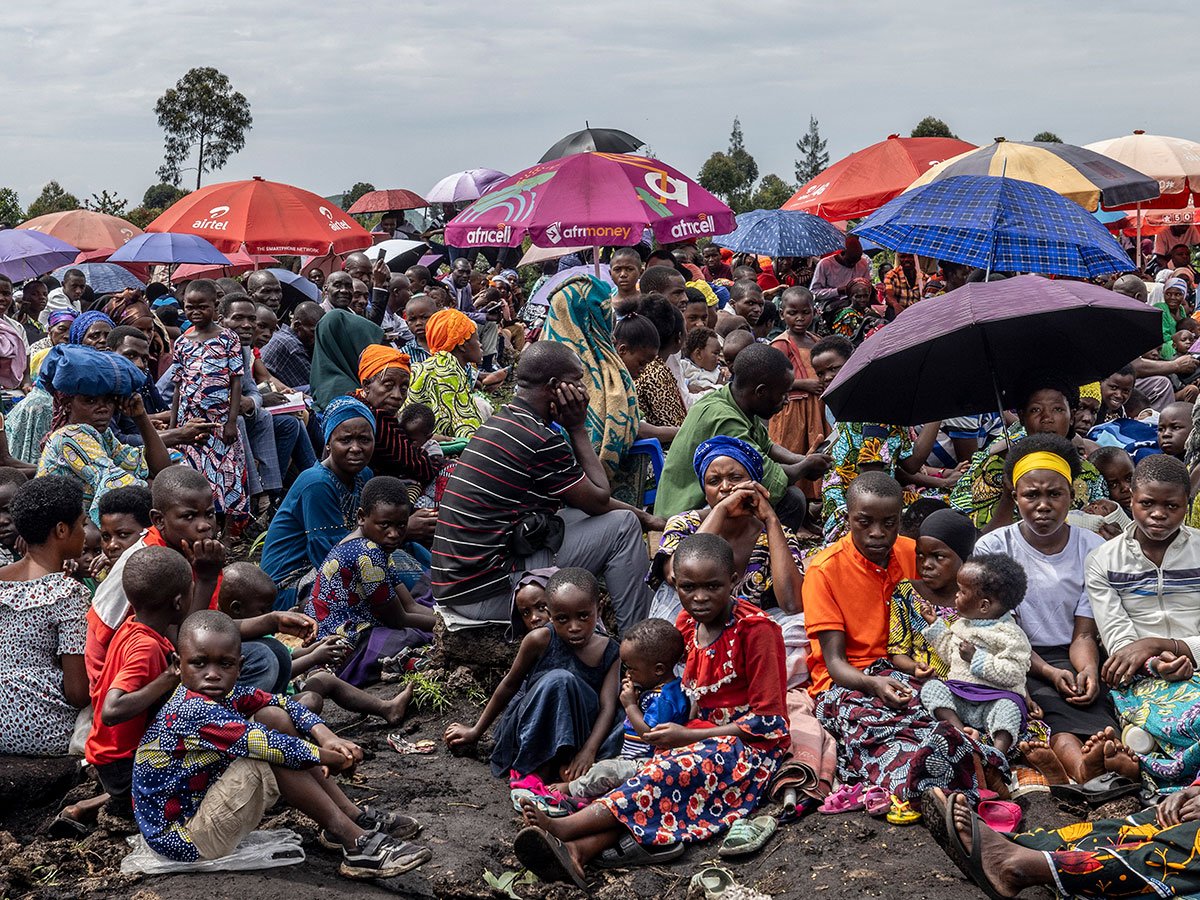
Whereas Donald Trump hailed the “peace” agreement between Rwanda and DRC as marking the end of a deadly three-decade war, a new report from the Oakland Institute, Shafted: The Scramble for Critical Minerals in the DRC, exposes it as the latest US maneuver to control Congolese critical minerals.
Under the Guise of Peace
After three decades of deadly wars and atrocities, the June 2025 “peace” deal between Rwanda and the Democratic Republic of the Congo (DRC) lays bare the United States’ role in entrenching the extraction of minerals under the guise of diplomacy. For decades, US backing of Rwanda and Uganda has fueled the violence, which has ripped millions of Congolese lives apart while enabling the looting of the country’s mineral wealth. Today, Washington presents itself as a broker of peace, yet its longstanding support for Rwanda made it possible for M23 to seize territory, capture key mining sites, and forced Kinshasa to the negotiation table with hands tied behind its back. By legitimizing Rwanda’s territorial advances, the US-brokered agreement effectively rewards aggression while sidelining accountability, justice for victims, and the sovereignty of the Congolese people.
The incorporation of “formalized” mineral supply chains from eastern DRC to Rwanda exposes the pact’s true aim: Securing access to and control over minerals under the guise of diplomacy and “regional integration.” Framed as peacemaking, this is part of United States’ broader geopolitical struggle with China for control over critical resources. Far from fostering peace – over a thousand civilians have been killed since the deal was signed while parallel negotiations with Rwanda’s rebel force have collapsed – this arrangement risks deepening Congo’s subjugation. Striking deals with the Trump administration and US firms, the DRC government is surrendering to a new era of exploitation while the raging war continues, driving the unbearable suffering of the Congolese people.
Introduction
The conflict in eastern DRC, which dates back three decades to the aftermath of the 1994 Rwandan genocide and subsequent Congo Wars, has claimed over six million lives, displaced millions more, and inflicted widespread suffering. Since late 2021, Rwanda and its proxy militia, M23, have stormed through mineral-rich lands and regional capitals, inflicting brutal violence and triggering mass displacement. While billions of dollars in natural resources are extracted from the area, Congolese communities toil in extreme poverty.
On June 27, 2025, a “peace” agreement was signed between Rwanda and the DRC under the auspices of the Trump administration, with diplomatic assistance from Qatar.1 The deal included pledges to respect the territorial integrity of both countries, to promote peaceful relations through the disarmament of armed groups, the return of refugees, and the creation of a joint security mechanism. A key clause commits the countries to launch a regional economic integration framework that would entail “mutually beneficial partnerships and investment opportunities,” specifically for the extraction of the DRC’s mineral wealth by US private interests.
Placing the deal in a historical perspective – after three decades of conflict and over seven decades of US chess game around Congolese minerals – this report examines its implications for the Congolese people as well as the interests involved in the plunder of the country’s resources.
The report begins by retracing 30 years of war, fueled by the looting of Congo’s mineral wealth and devastating for the people of eastern DRC. It then examines how US policy in Central Africa, from the Cold War to the present, has been shaped by its interest in Congolese minerals, sustained alliances with Rwanda and Uganda, and a consistent pattern of overlooking atrocities in support of these allies.
The report then analyses the implications of the regional economic integration aspect of the deal, which aims to link mineral supply chains in the DRC and Rwanda with US investors. The last sections examine the prospect for lasting peace and security resulting from the deal and the impact of growing involvement of US private actors in DRC and Rwanda.
Original Source: Oakland Institute
Related posts:

 Profit off Peace? Meet the Corporations Poised to Benefit from the DRC Peace Deal
Profit off Peace? Meet the Corporations Poised to Benefit from the DRC Peace Deal
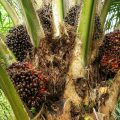 DR Congo: RIAO-RDC calls for the immediate release of four leaders from the community of Mwingi who were arrested after a peaceful protest against the oil palm plantation company PHC
DR Congo: RIAO-RDC calls for the immediate release of four leaders from the community of Mwingi who were arrested after a peaceful protest against the oil palm plantation company PHC
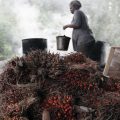 DR Congo oil palm company bankrolled by development banks unleashes wave of violence against villagers after peaceful protests
DR Congo oil palm company bankrolled by development banks unleashes wave of violence against villagers after peaceful protests
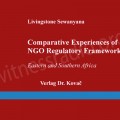 Operations of civil society organizations will continue to be stifled until government understands their work – New Book.
Operations of civil society organizations will continue to be stifled until government understands their work – New Book.
NGO WORK
Failed US-Brokered “Peace” Deal Was Never About Peace in DRC
Published
3 weeks agoon
October 22, 2025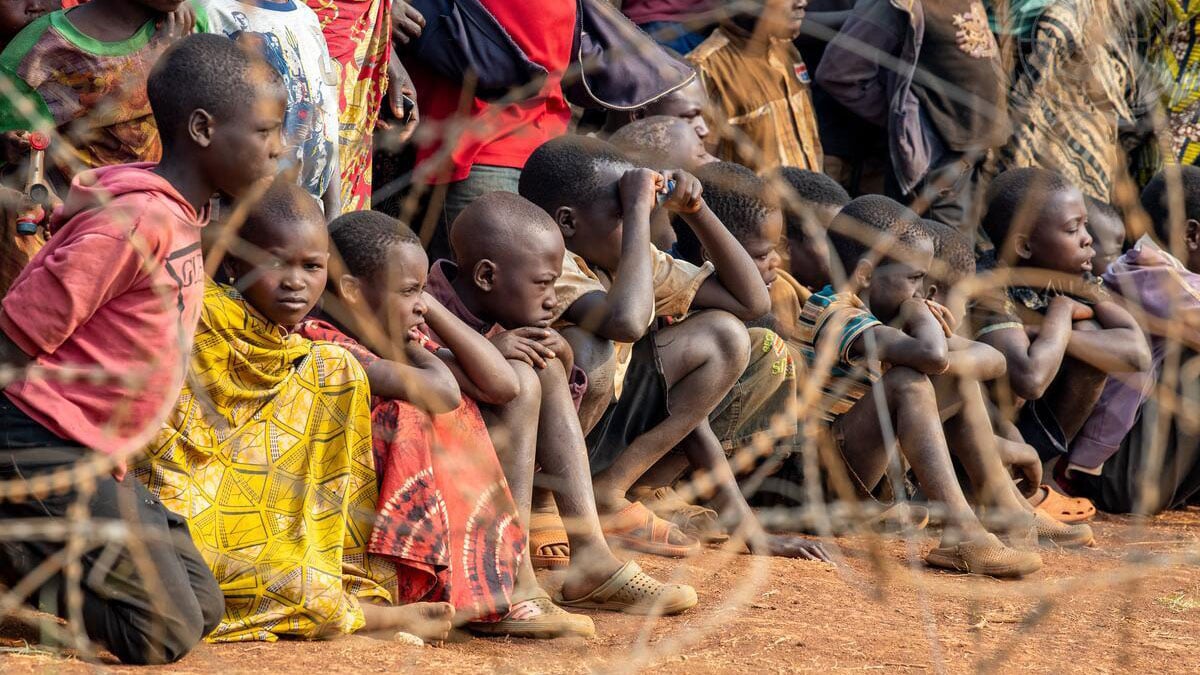
Oakland, CA – Whereas Donald Trump hailed the “peace” agreement between Rwanda and DRC as marking the end of a deadly three-decade war, a new report from the Oakland Institute, Shafted: The Scramble for Critical Minerals in the DRC, exposes it as the latest US maneuver to control Congolese critical minerals.
“US involvement in Congolese affairs has always been unequivocally tied to the goal of securing access to critical minerals,” said Frédéric Mousseau, report co-author and Policy Director at the Oakland Institute. “The ‘peace’ deal comes after decades of US training, advising and sponsoring foreign armies and rebel movements, and at a time when Rwanda and its proxy M23 have expanded territorial control in eastern DRC. This is a win-lose deal that serves US mining interests and rewards Rwanda for decades of pillaging Congolese resources.”
The report’s analysis of previously overlooked coltan trade data shows that the US has been a central actor in laundering illegally smuggled Congolese minerals. Rwanda’s overall tantalum (metallic ore extracted from coltan) exports to the US increased 15-fold between 2013 and 2018. This was after the first M23 invasion in 2012 and at the time when the US administration waived its sanction mechanism against Rwanda. At its peak, over half of US imports of tantalum originated from Rwanda, despite the country’s limited production. Shafted: The Scramble for Critical Minerals in the DRC details how the regional economic integration at the center of the “peace” agreement will legalize this laundering.
“With the world’s largest reserves of critical minerals, the Congolese will continue to bear the social and environmental costs of extraction, while Rwanda reaps the benefits from processing and exporting its neighbor’s resources,” said Andy Currier, report co-author and Policy Analyst at the Oakland Institute. “The deception is even more obvious knowing that Rwanda’s Minister of State for Regional Integration is none other than James Kabarebe – sanctioned by the US Treasury in early 2025 for orchestrating Rwanda’s support for the M23, coordinating the export of minerals from the DRC, and managing the revenue generated by this extraction,” Currier continued.
The report shows that the regional integration negotiated by the US is actually about building two separate export routes for Congolese minerals. One that establishes Rwanda as a hub for minerals extracted in the conflict areas of eastern DRC and another that upgrades the Lobito Corridor, a key export route to the Atlantic Ocean for copper and cobalt mined in the south of the country – financed through a US$553 million loan to Angola by the US Development Finance Corporation (DFC).
Several mining deals along these two routes are already being negotiated by a number of US firms – backed by high-profile billionaires like Bill Gates, close Trump associates, and US military and intelligence figures. “True peace and prosperity will only come when the Congolese – not foreign powers – set the terms of the country’s future,” said Maurice Carney, Executive Director of Friends of the Congo. “Under the US-brokered ‘peace,’ the suffering of the Congolese people persists and a new era of exploitation unfolds.”
With over 1,000 civilians killed in the months since the “peace” deal was signed, Shafted proves that Congolese civil society’s concerns are well founded. American involvement has little to do with ending violence, and everything to do with unlocking strategic mining access for corporate interests. The agreement effectively rewards aggression while sidelining essential conditions for durable peace: Accountability of the perpetrators and their enablers, justice for the victims, and sovereignty of the Congolese people.
Source: oaklandinstitute.org
Related posts:

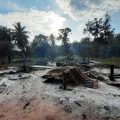 Amidst Failed US Sanctions, the Indigenous Pay the Price for Nicaragua’s Gold Rush
Amidst Failed US Sanctions, the Indigenous Pay the Price for Nicaragua’s Gold Rush
 How the EU-Mercosur trade deal is worsening the international climate crisis
How the EU-Mercosur trade deal is worsening the international climate crisis
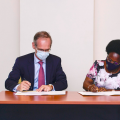 Uganda, Total sign crude oil pipeline deal
Uganda, Total sign crude oil pipeline deal
 Under Guise of Climate Action, the World Bank Launches Fresh Offensive on Land Rights
Under Guise of Climate Action, the World Bank Launches Fresh Offensive on Land Rights
NGO WORK
Documenting killings and disappearances of land and environmental defenders
Published
1 month agoon
October 9, 2025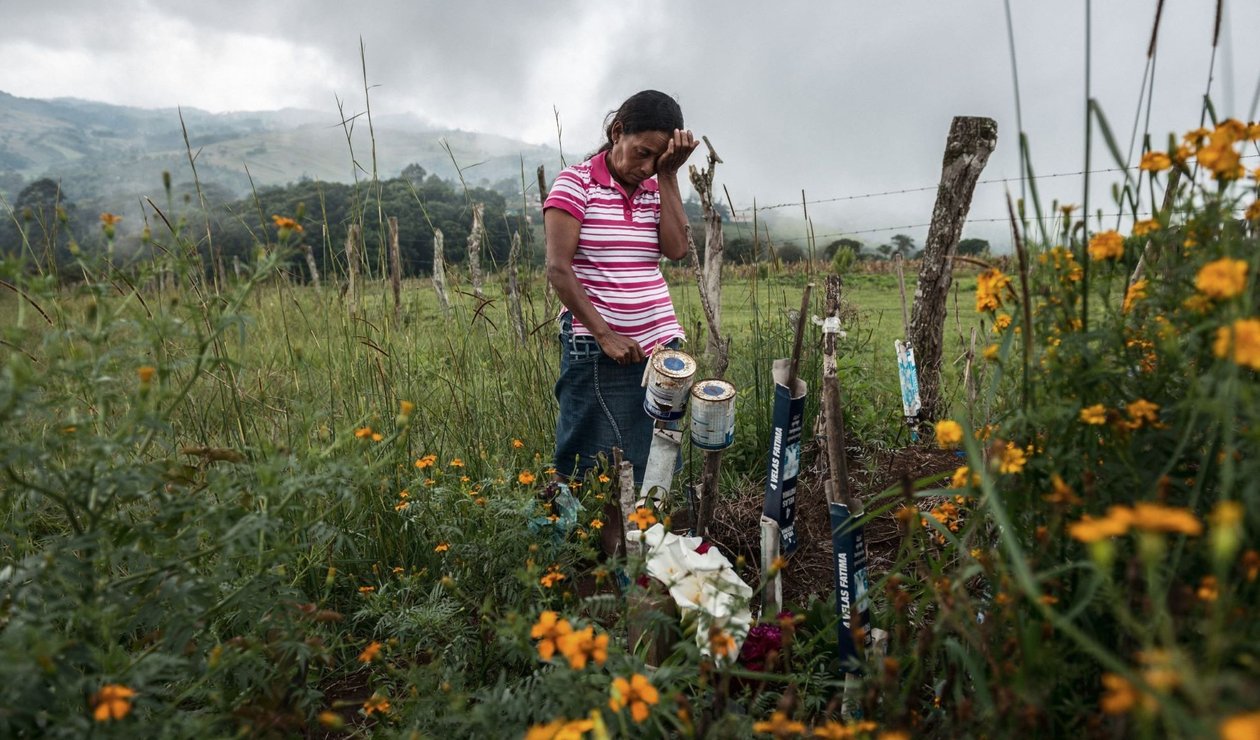
Julia Francisco Martínez stands at the graveside of her husband Juan, a Honduran Indigenous defender who was found murdered in 2015. Giles Clarke / Global Witness
Every year, Global Witness works with partners to gather evidence, verify and document every time a land and environmental defender is killed or disappeared. Our methodology follows robust criteria, yet undocumented cases pose challenges when it comes to analysing data
Global Witness documents killings and long-term disappearances of land and environmental defenders globally. In partnership with over 30 local, national and regional organisations in more than 20 countries, we produce an annual report containing these figures, and we have done so since 2012.
Our methodology involves a year-long process of cross-referencing data from different sources to ensure its credibility. Over 2,200 killings or long-term disappearances of defenders appear in our database since 2012 – with 146 cases documented in 2024.
Every year, we maintain a database to keep a record of these crimes and create a comprehensive global picture of the systematic violence defenders face.
The data provides a snapshot of the underlying drivers behind reprisals and indicates how some defenders and their communities face increased risks. Exposing these trends is the first of many steps to ensure that defenders and their communities are protected and can exercise their rights without fearing for their lives.
Killings and disappearances documented between 2012 and 2024
-
2,253
defenders have been killed or disappeared since 2012
Global Witness
-
146
of these attacks occurred in 2024
Global Witness
Classifying defenders’ cases
Most of the cases recorded in our database are killings – including assassinations by illicit actors, state murder and death in detention.
Our database also includes disappearances of defenders, where the individual has been missing for six months or more.
All reports prior to 2025 have combined killings and long-term disappearances into one single headline figure. For greater clarity, our latest report indicates a distinction between these two types of attack, and our reports will continue to make this distinction in future.
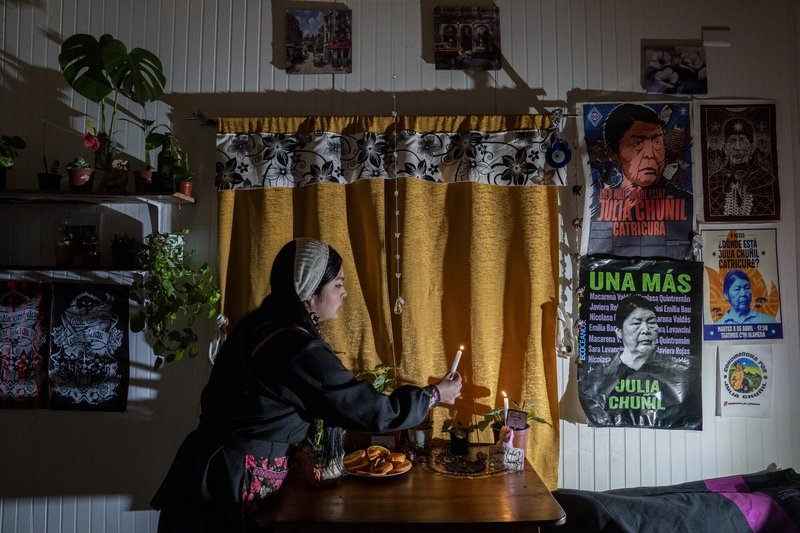
Lissette Chuñil makes a offering to honour her grandmother – a Mapuche woman and president of the Indigenous community of Máfil, who was disappeared in November 2024. Tamara Merino / Global Witness
Cases from prior years or those already included in our database are not continuously monitored. Where we receive updated information on an attack, we may retrospectively include or remove cases.
We document the killing or disappearance of a defender when there is a reasonable and suspected link to an individual’s activism or where the individual played a role in defence of the land or the environment.
As well as individuals directly involved in activism, we also document tangential violence against families, community members or others caught up in attacks.
Our definition covers a broad range of people and encompasses different types of land and environmental leadership. Crucially, this involves people who work in any capacity to protect rights linked to the exploitation of land or the environment.
How we define land and environmental defenders
Land and environmental defenders are a specific type of human rights defender – individuals or groups of people who act to promote, protect or strive for the realisation of human rights through peaceful action.
Their role as human rights protectors is recognised by the UN Declaration on Human Rights Defenders, principles also enshrined in other legally binding international instruments. This includes those working to protect human rights relating to the environment, including water, air, land, flora and fauna.
We define defenders as people who take peaceful action against the unjust, discriminatory, corrupt or damaging exploitation of natural resources or the environment.
Land and environmental struggles take different forms and are shaped by local contexts. For example, in every region of the world, communities strive against systematic land dispossession and environmental destruction from extractive industries.
For some the threat to territories is intimately connected to the degeneration of their sovereignty, culture, livelihoods and homes. Others are caught in wider conflicts which exacerbate land, environmental and climate injustices.
Defenders often live in communities whose land, health and livelihoods are threatened by the operations of mining, logging, agribusiness or other industries.
Some defend our biodiverse environment, while others support such efforts through their roles as lawyers, politicians, park rangers, journalists, or members of campaigns or civil society organisations.
Others are holders of traditional or Indigenous knowledge, working as Indigenous guards or community knowledge keepers.
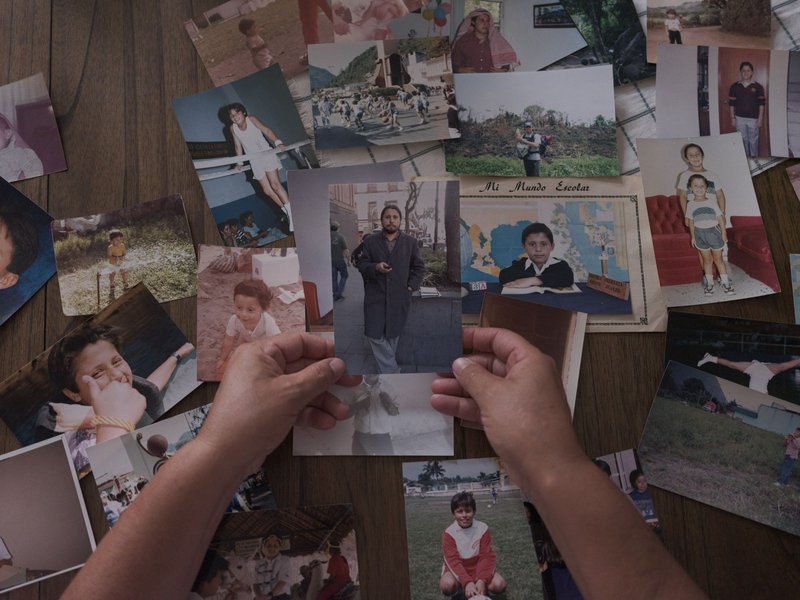
Family members sift through photographs of Ricardo Arturo Lagunes Gasca, a human rights lawyer who disappeared with Indigenous leader Antonio Díaz Valencia after attending a community meeting in San Miguel de Aquila, Mexico. Luis Rojas / Global Witness
Identifying and documenting cases
We learn of killings and disappearances through reliable sources of online reporting, tip-offs and wider documentation efforts from civil society organisations.
We set up search engine alerts using keywords and conduct other searches online to identify relevant cases. We also share information with international and national organisations who report on attacks against human rights defenders.
We then research each case to assess whether the person killed or disappeared was a land and environmental defender, according to our definition.
Desk-based research has its limitations. Many attacks on land and environmental defenders receive little or no media attention, due to the remote location of attacks, stigmatisation by investigating authorities, or widespread government repression of the media.
In most instances, we supplement identified cases with additional research. This includes working closely to share information with trusted civil society organisations and communities who have gathered evidence through their own investigations.
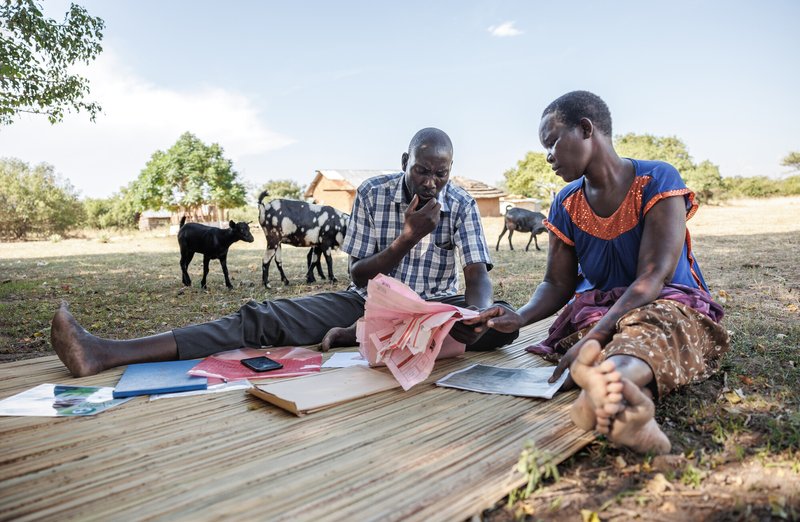
Communities affected by the East African Oil Pipeline report receiving threats after refusing to leave their homes without adequate compensation. Jjumba Martin / Global Witness
Verifying information
We work closely with in-country partners to verify whether there is a reasonable and suspected link between the killing or disappearance and the person’s activism.
Testimony from families, communities and organisations working with targeted defenders often provides key information. Sometimes we review official documentation, including police reports or legal documents. This information is documented by Global Witness and not made public.
Navigating toxic narratives
Year after year, we are confronted with cases where the very nature of what it means to be a land and environmental defender is questioned.
Often governments, corporations and media outlets propagate a narrow view of land and environmental activism, excluding individuals and communities whose role defending land or environmental rights is less recognisable.
Across the world, defenders and their communities are often labelled as “criminals”, “agitators” or “communists”. These toxic terms are sometimes employed by the institutions and authorities that claim to uphold people’s rights.
Media can often repeat damaging narratives or even simply ignore reporting on these cases, making it difficult to verify whether an attack could be linked to a persons’ activism.
In these situations, we work closely with local organisations to clarify the contexts in which defenders work, and the patterns of stigmatisation they face, and gather more evidence of the role they played in environmental and land rights protection.
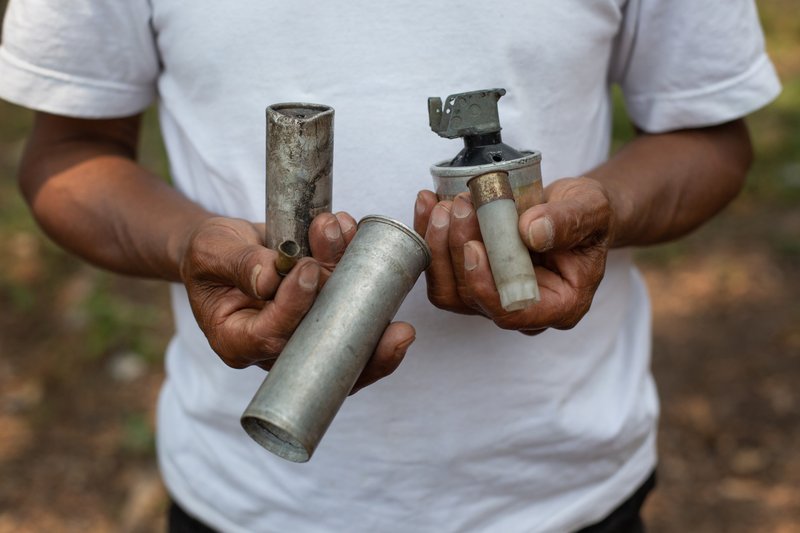
An Indigenous activist holds smoke bombs, tear gas canisters and other projectiles used by Guatemalan state authorities to prevent peaceful protest against a hydro-electric project. James Rodriguez / Global Witness
We also work alongside other organisations gathering national, regional and international reprisal-related data. This includes official UN sources of data collection as well as civil society initiatives.
Every data collection project has its own definitions and methodologies, which create challenges in collating this data into a global dataset on attacks against defenders. Some existing datasets overlap with ours, but often do not fully coincide.
For every case documented, we research and evaluate whether it fits our definition of a land and environmental defender.
Often, public reporting on attacks is circumstantial or lacks information. In some cases, attacks go unreported, particularly in rural areas and in certain countries.
In these cases, countries with restricted civic space – where civil society organisations, NGOs and other groups that monitor the work of defenders are less present, for example – are not able to fill the reporting gap.
This is further exacerbated by repression of the media, authoritarian governments and active political conflicts. Documenting massacres or reprisals in active conflict zones, areas under occupation or where organised crime groups have social or territorial control is also challenging.
These contextual challenges mean that our data is likely to underreport killings and disappearances in certain countries and regions of the world – particularly in areas of Asia, Africa and the Middle East.
Spotlighting our criteria
To meet our criteria, a case must be supported by the following available information:
- Credible sources of information. This can include online publications, official documentation on a case or collating information from families, colleagues and civil society organisations linked to a case.
- Details about the type of act and method of violence, including the date and location.
- Name and biographical information about the victim.
- Clear, proximate and documented connections to the protection and defence of environmental and land rights. This includes evaluating the various roles of defenders play and the wider contexts and underlying conflicts that affect them.
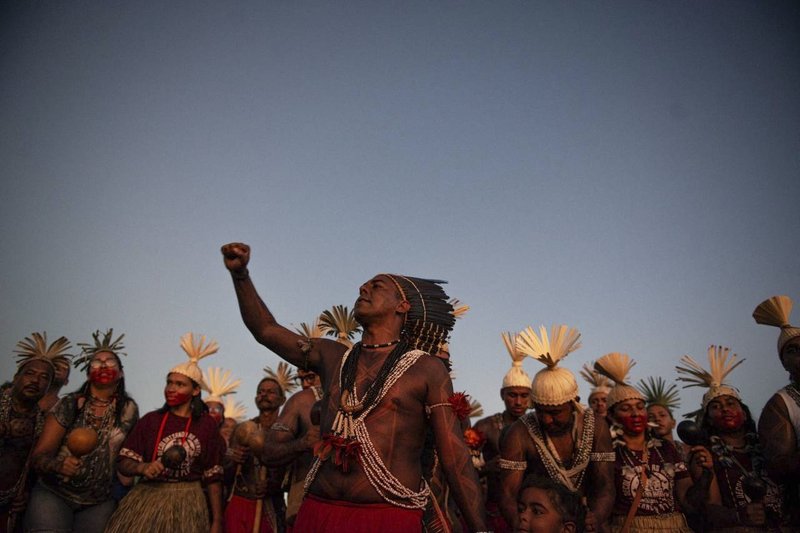
Many of the defenders working to protect land and environment also speak out against the harmful impacts of the climate crisis either because of the direct impact on their livelihoods and communities or in their role as lawyers, journalists or members of civil society organisations. Matheus Alves / Sumauma / Global Witness
Analysing the data
We seek to understand the most dangerous repercussions defenders face in the context of the territorial and environmental disputes taking place in their countries.
We also look to understand the characteristics of defenders and their communities – who they are as people and whether some face greater, more targeted risks.
Focusing on the most serious harms (killings and disappearances) enables us to confidently verify the threats defenders face and allows us to analyse geographical trends at regional, country and local level – though with recognised limitations.
We record whether a defender belongs to a marginalised group – Indigenous Peoples, Afro-descendants or rural communities – or if they act as a defender in their role as lawyers, journalists or members of civil society organisations. This enables us to understand more about the characteristics of defenders working to protect land and the environment.
We try to gather information on the rights defenders are striving to protect, such as whether they are engaged in a territorial dispute or preventing environmental damage.
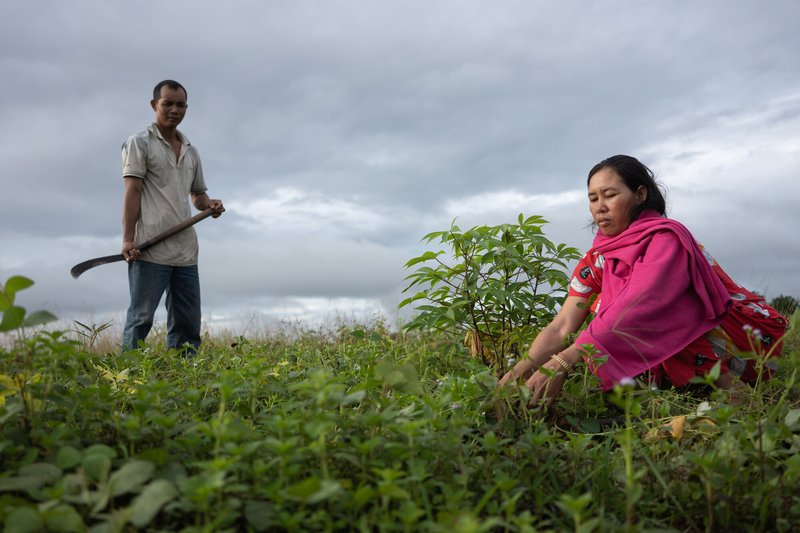
Violence is often connected to wider territorial disputes linked to the expansion of extractive projects, devastating the homes and livelihoods of families and communities. Andrew Ball / Panos / Global Witness
We also aim to identify the underlying driver of the harms that led to their acts of protest – for instance, land disputes or industries linked to destructive practices or rights infringements.
Where possible, we record the alleged perpetrator of the crime – both the direct offender and the suspected intellectual authors.
Our dataset is reviewed and updated annually. Before we publish our data, documented cases from the previous year go through a rigorous fact-checking process to ensure confidence in the veracity of our data.
We do not proactively review historic cases in our database. If there are changes in the status of a case or if more information about an individual defender comes to light, we revise and amend our database accordingly.
In the weeks before the publication of our Annual Defenders Report, we temporarily halt the inclusion of new cases – any new cases or information received are kept on file and later added to the database.
Despite efforts to overcome the data access and verification challenges outlined above, our data is likely incomplete. The figures presented in Global Witness reports are therefore probably an underestimate and should be considered as only a partial picture of the extent of killings and disappearances of land and environmental defenders.
Read full article: globalwitness.org
Related posts:

 Human rights defenders show remarkable courage in the face of attacks and killings – new report
Human rights defenders show remarkable courage in the face of attacks and killings – new report
 #COP27: HUMAN RIGHTS ADVOCATES URGE PARTIES TO INCREASE RECOGNITION AND PROTECTION OF ENVIRONMENTAL AND LAND DEFENDERS.
#COP27: HUMAN RIGHTS ADVOCATES URGE PARTIES TO INCREASE RECOGNITION AND PROTECTION OF ENVIRONMENTAL AND LAND DEFENDERS.
 Toxic platforms, broken planet: How online abuse of land and environmental defenders harms climate action
Toxic platforms, broken planet: How online abuse of land and environmental defenders harms climate action
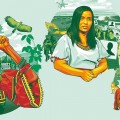 Defending tomorrow: The climate crisis and threats against land and environmental defenders
Defending tomorrow: The climate crisis and threats against land and environmental defenders

Discover How Foreign Interests and Resource Extraction Continue to Drive Congo’s Crisis

Seed Sovereignty: Most existing and emerging laws and policies on seeds are endangering seed saving and conservation on the African continent.

Lands ministry rejects call to save over 300 Masaka residents facing eviction

Report reveals ongoing Human Rights Abuses and environmental destruction by the Chinese oil company CNOOC

StopEACOP Coalition warns TotalEnergies and CNOOC investors of escalating ‘financial and reputational’ Risks

Oil palm tree growing in Uganda: The National Oil Palm Project is threatening to evict hundreds of smallholder farmers to expand its operations.

New! The Eyes on a Just Energy Transition in Africa Program is now live on Witness Radio.

Failed US-Brokered “Peace” Deal Was Never About Peace in DRC

Innovative Finance from Canada projects positive impact on local communities.
Over 5000 Indigenous Communities evicted in Kiryandongo District
Petition To Land Inquiry Commission Over Human Rights In Kiryandongo District
Invisible victims of Uganda Land Grabs
Resource Center
- REPARATORY AND CLIMATE JUSTICE MUST BE AT THE CORE OF COP30, SAY GLOBAL LEADERS AND MOVEMENTS
- LAND GRABS AT GUNPOINT REPORT IN KIRYANDONGO DISTRICT
- THOSE OIL LIARS! THEY DESTROYED MY BUSINESS!
- RESEARCH BRIEF -TOURISM POTENTIAL OF GREATER MASAKA -MARCH 2025
- The Mouila Declaration of the Informal Alliance against the Expansion of Industrial Monocultures
- FORCED LAND EVICTIONS IN UGANDA TRENDS RIGHTS OF DEFENDERS IMPACT AND CALL FOR ACTION
- 12 KEY DEMANDS FROM CSOS TO WORLD LEADERS AT THE OPENING OF COP16 IN SAUDI ARABIA
- PRESENDIANTIAL DIRECTIVE BANNING ALL LAND EVICTIONS IN UGANDA
Legal Framework
READ BY CATEGORY
Newsletter
Trending
-
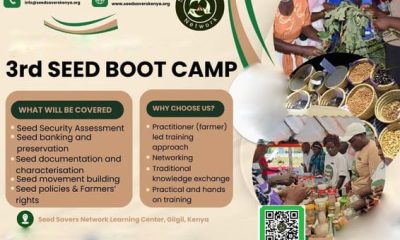
 MEDIA FOR CHANGE NETWORK2 weeks ago
MEDIA FOR CHANGE NETWORK2 weeks agoSeed Boot Camp: A struggle to conserve local and indigenous seeds from extinction.
-

 MEDIA FOR CHANGE NETWORK1 week ago
MEDIA FOR CHANGE NETWORK1 week agoReport reveals ongoing Human Rights Abuses and environmental destruction by the Chinese oil company CNOOC
-

 SPECIAL REPORTS AND PROJECTS1 week ago
SPECIAL REPORTS AND PROJECTS1 week agoThe Environmental Crisis Is a Capitalist Crisis
-

 MEDIA FOR CHANGE NETWORK1 week ago
MEDIA FOR CHANGE NETWORK1 week agoLands ministry rejects call to save over 300 Masaka residents facing eviction
-

 SPECIAL REPORTS AND PROJECTS1 week ago
SPECIAL REPORTS AND PROJECTS1 week agoGlobal use of coal hit record high in 2024
-

 MEDIA FOR CHANGE NETWORK2 days ago
MEDIA FOR CHANGE NETWORK2 days agoSeed Sovereignty: Most existing and emerging laws and policies on seeds are endangering seed saving and conservation on the African continent.
-

 NGO WORK23 hours ago
NGO WORK23 hours agoDiscover How Foreign Interests and Resource Extraction Continue to Drive Congo’s Crisis

